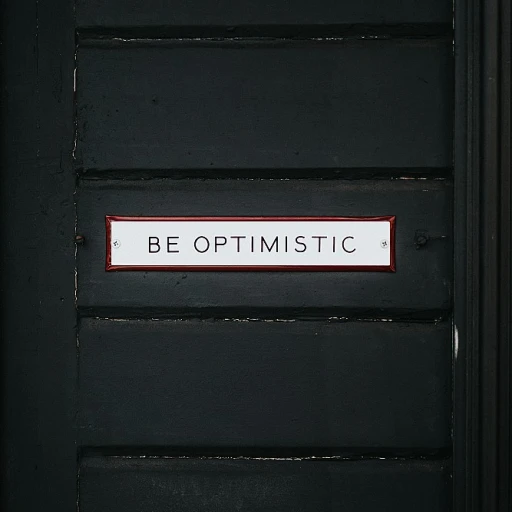
Defining the Business Strategist
Understanding the Core Role
In today's dynamic business environment, the role of a business strategist is more crucial than ever. A business strategist is not just a planner but a visionary who aligns the organization's goals with market opportunities. They are the architects of the company's future, crafting strategies that drive growth and ensure long-term success.
Key Responsibilities and Skills
Business strategists are responsible for developing comprehensive strategies that encompass various aspects of the organization, from marketing to project management. Their skills in problem solving and strategic planning are essential in navigating complex challenges and ensuring the organization maintains a competitive advantage.
These strategists must possess a keen understanding of industry trends and data analysis, enabling them to make informed decisions that support the organization's strategic vision. Their contribution is pivotal in setting both short-term and long-term goals that align with the company's mission.
Strategic Vision and Planning
Strategic vision and planning are at the heart of a business strategist's role. By leveraging their expertise in business development and digital marketing, they help organizations identify new opportunities for growth. This involves a deep dive into market analysis and the formulation of strategies that capitalize on emerging trends.
For those looking to enhance their leadership capabilities, a strategic planning guide can be an invaluable resource. It provides insights into how strategic planning can be effectively integrated into the organization's overall strategy.
Strategic Vision and Planning
Crafting a Strategic Vision
A well-defined strategic vision forms the bedrock of a robust business strategy. It is at this juncture that a business strategist plays a pivotal role, guiding the organization towards long-term goals while steering clear of potential pitfalls. By combining insights from industry trends and key data, strategists can sculpt a roadmap that aligns with both current capabilities and future aspirations. To shape an effective strategic vision, a strategist must first understand the intricacies of the business environment. This involves leveraging skills such as project management and problem solving to identify the organization's competitive advantage. Moreover, by integrating digital marketing techniques, the strategist can enhance the organization's market presence, driving growth and business development. Yet, the real challenge lies in anticipating and adapting to shifts in the market landscape. Business strategists need to engage in continuous market analysis to uncover new opportunities and threats. This proactive approach not only helps in fine-tuning strategies but also ensures that the business remains agile and responsive. Key to establishing a long-term vision is setting both short-term and long-term goals. A balance of these objectives can propel business growth and sustain momentum over time. Additionally, collaboration with business consultants and coaches can provide fresh perspectives and introduce innovative solutions that may have been overlooked. Ultimately, the strategic vision is more than just a document; it is a dynamic guide that requires regular revisiting and refining. By doing so, organizations can maintain their trajectory toward success and adapt to an ever-evolving market. For more insights on optimizing strategies in complex industries, explore how enhancing supply chain strategies can benefit automotive suppliers.Navigating Complex Challenges
Tackling Multifaceted Challenges in the Business Arena
Understanding that navigating complex challenges is a core tenet of a business strategist's role can significantly enhance an organization's long-term success. In today's dynamic business environment, strategists need to continuously adapt to ever-evolving industry trends, market fluctuations, and changing consumer behaviors. This requires not just analytical skills, but also creative problem-solving and strategic acumen.
Business strategists are central to identifying and leveraging opportunities in the market. Their contribution lies in transforming data into actionable insights, thus equipping organizations to forge a competitive advantage. The focus is on bridging gaps between available resources and organizational goals, facilitating growth through meticulously crafted strategies tailored for success. A business strategist's expertise isn't confined to theoretical knowledge; it's about practical application and turning strategic vision into tangible outcomes.
Moreover, strategists play a pivotal role in problem resolution and project management. They pinpoint strategic roadblocks and develop solutions that align with the long-term objectives of the company. The strategists' toolbox often includes digital marketing insights and business development strategies, which they integrate to create innovative solutions that propel business growth.
Key to navigating complex challenges is the seamless collaboration with C-suite executives. By providing strategic support, offering informed business insights, and predicting future challenges, business strategists empower leadership teams to make informed decisions. This synergy can be further explored in our detailed guide on crafting an effective executive briefing for strategic success, a resource essential for any strategist aiming to impactfully influence corporate strategy.
Collaboration with C-suite Executives
Crafting Collaborative Strategies with Executives
In the evolving realm of business strategy, a collaborative approach with the C-suite is pivotal. A business strategist's role is not just about devising plans but also ensuring strategic alignment with the organization's leadership. This involves working closely with executives, which can significantly amplify both short-term and long-term success. The ability to translate data-driven insights into actionable strategies is a skill that a competent strategist brings to the team. Their contribution is invaluable when it comes to navigating industry trends, establishing realistic goals, and driving organizational growth. Moreover, strategic planning often requires input from various departments to ensure goals are comprehensive and effective. But how can business strategists effectively collaborate with other C-suite members? Here are some key actions they typically focus on:- Aligning on Objectives: Business strategists help in defining clear and aligned objectives, ensuring all team members are moving towards the same goals, bridging the gap between operational activities and strategic vision.
- Facilitating Open Communication: Regular and open communication is vital between strategists and executives. This ensures transparency in strategy implementation, monitoring, and adjustments when necessary.
- Leveraging Diverse Expertise: By leveraging the diverse skills and insights from various executives, strategists can forge comprehensive strategies that encompass a wide range of perspectives, enhancing competitive advantage.
- Adapting to Market Changes: Strategists support executives in adapting strategies based on changes in the market environment, ensuring the organization remains resilient and proactive in the face of challenges.
Measuring Success and Impact
Evaluating Outcomes and Gauging Impact
A crucial task for any business strategist is to evaluate outcomes and gauge the impact of implemented strategies. Measurements aren't merely figures on a spreadsheet—they are the lens through which strategists view the effectiveness of business strategies. They provide insight into everything from marketing impact to the realization of growth opportunities. The challenge lies in aligning these measurements with the organization's strategic goals and term objectives. Strategists rely heavily on data to inform their evaluations. By interpreting key performance indicators (KPIs), they can determine whether a strategy is successfully working towards the long-term growth goals of the organization. This involves a combination of quantitative and qualitative analysis, gauging not only the data but also how it impacts the broader business environment. It's not uncommon for business strategists to face an evolving set of challenges in measuring success. The market is dynamic, and so too are the metrics used to assess competitive advantage. As market demands shift and new industry trends emerge, strategists must adapt their measurement approaches, ensuring they capture the most relevant data to support informed decision-making. Moreover, the value of a business strategist is evident in their ability to communicate these results effectively. Success is not just about presenting data but translating those figures into a compelling narrative that persuades C-suite executives of the value and impact of strategic initiatives. This skill, closely tied to their roles in strategic planning and business development, empowers them to prove their contributions to the organization. As business environments become increasingly complex, measuring success requires not only strong analytical skills but also a deep understanding of project management, digital marketing, and problem-solving strategies. By developing a comprehensive evaluation framework, strategists can ensure that they capture a complete picture of strategic success, supporting the organization in pursuing its objectives with confidence.Future Trends in Business Strategy
Adapting to Industry Dynamics: Preparing for Future Challenges
In an ever-evolving business environment, the ability to adapt and foresee upcoming industry trends is crucial for the sustained success of any organization. Business strategists must stay ahead of the curve by keeping a pulse on market dynamics and continuously refining their strategies to harness emerging opportunities. To remain competitive, organizations need to focus on several key areas:- Embracing Technological Advancements: As digital marketing strategies continue to evolve, strategists should leverage data-driven insights to foster business growth. By integrating advanced technologies like AI and machine learning, businesses can significantly enhance their decision-making processes.
- Focusing on Sustainability and Ethics: Today's consumers are increasingly conscious of sustainability and corporate responsibility. Strategists must ensure that organizational goals align with these values to foster long-term trust and support.
- Enhancing Agility: Flexibility is vital. Strategists should facilitate a culture of agility, enabling businesses to pivot swiftly in response to market shifts or unforeseen challenges, thereby maintaining a competitive advantage.
- Utilizing Data for Strategic Insights: Data is at the heart of strategic planning. Business strategists can use data analytics to identify potential market opportunities and measure the contribution of various strategies toward achieving business goals.














